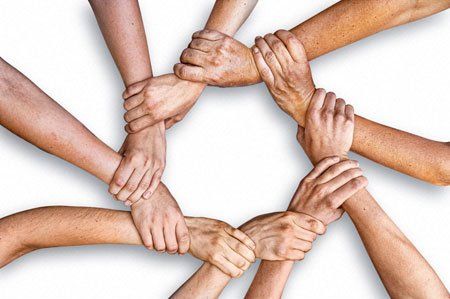Founded during the height of the Civil War in 1862, The Union League of Philadelphia stands as one of the city's most prestigious and historically rich institutions. Known for its deep ties to civic leadership, political influence, and cultural impact, the Union League has played a pivotal role in shaping Philadelphia’s identity for over 160 years. So, whether you're a local history buff, a political enthusiast, or just curious about exclusive private clubs, learning about the Union League of Philadelphia offers a unique window into the city's past and present.
The League started as a patriotic organization dedicated to supporting the Union cause during the Civil War. Over the decades, it evolved into a private membership club that welcomed the city’s elite, from business leaders to politicians and philanthropists. Today, it remains a symbol of tradition, power, and community involvement, while also adapting to modern times.
Though often shrouded in mystery for those outside its walls, the Union League continues to influence Philadelphia’s civic and cultural landscape. From its historic building on South Broad Street to its active philanthropic initiatives, the League remains a key player in the city's social and political fabric. So, what makes it so special, and how has it stayed relevant for so long?
Table of Contents
- A Look Back: The Origins of the Union League
- The Union League Building: A Philadelphia Landmark
- Who Joins the Union League?
- What Role Does the Union League Play Today?
- Frequently Asked Questions
A Look Back: The Origins of the Union League
The Union League of Philadelphia was born out of necessity. In 1862, as the Civil War raged on, a group of concerned citizens formed the League to support President Abraham Lincoln and the Union cause. At a time when the nation was deeply divided, the League’s mission was clear: to promote loyalty, unity, and patriotism.
Members quickly became active in the war effort, raising funds, supporting soldiers and their families, and promoting enlistment. The League also played a key role in fighting against Copperheadism — a movement that opposed the war and often supported the Confederacy. It wasn’t long before the League gained national attention for its unwavering support of the Union.
After the war, the Union League transitioned from a political organization to a private club that welcomed the city’s most influential leaders. Though no longer a political entity in the traditional sense, its roots in civic activism and leadership remained strong. This shift allowed the League to maintain its influence while adapting to peacetime society.
The Union League Building: A Philadelphia Landmark
One of the most recognizable symbols of the Union League is its historic building located at 140 South Broad Street in downtown Philadelphia. This stunning architectural gem, built in the 1860s and expanded in the early 20th century, is a member of the National Register of Historic Places.
The interior is just as impressive as the exterior, featuring grand ballrooms, opulent libraries, and a vast collection of Civil War memorabilia and American historical artifacts. The League’s art collection includes works by famous artists like Thomas Eakins and Gilbert Stuart, making it a cultural treasure as well as a social hub.
While access is limited to members and their guests, the building serves as a reminder of the League’s long-standing commitment to Philadelphia. It hosts events, meetings, and gatherings that continue to shape the city’s social and political conversations.
Who Joins the Union League?
Becoming a member of the Union League isn’t as simple as filling out a form. The club maintains a selective membership process, often requiring sponsorship by current members and approval by a membership committee.
Traditionally, members have been leaders in business, law, politics, and the arts. In recent years, the League has made efforts to broaden its base, welcoming more diverse voices and younger members while still honoring its traditions. Annual dues and initiation fees can be steep, which reflects the exclusivity and prestige associated with membership.
So, what do members get in return? Beyond access to one of the city’s most beautiful buildings, they enjoy networking opportunities, cultural events, and a sense of belonging to a community that has shaped Philadelphia for generations.
What Role Does the Union League Play Today?
In the 21st century, the Union League of Philadelphia continues to evolve. While it still functions as a private club, its influence extends far beyond its dining rooms and meeting halls. The League supports a wide range of civic and charitable initiatives, including educational programs and community development projects.
It also remains a center for political discourse and leadership development. Many of Philadelphia’s top elected officials, business leaders, and cultural figures have been or are members of the League. It hosts lectures, forums, and discussions that address pressing issues facing the city and the nation.
So, even as it maintains its traditions, the Union League is far from a relic of the past. It continues to engage with modern challenges and opportunities, proving that history and progress can go hand in hand.
Frequently Asked Questions
How do I become a member of the Union League of Philadelphia?
Membership is by invitation only and requires sponsorship by current members. Prospective members must also go through an application and approval process. You can learn more about membership here.
Can the public visit the Union League building?
Unfortunately, the building is not open to the general public. However, the League occasionally hosts public events or offers limited access through special arrangements. For more information, you can contact the Union League directly.
Is the Union League still politically active?
While it is no longer a political organization in the traditional sense, the Union League remains a hub for civic engagement and political discussion. It hosts events and forums that bring together leaders from across the ideological spectrum.
Learn more about Philadelphia’s historic institutions and their impact on the city’s cultural and political life.



Detail Author:
- Name : Turner Miller
- Username : jennyfer87
- Email : rempel.shannon@gmail.com
- Birthdate : 1986-08-08
- Address : 2200 Pouros Ferry Donberg, NC 75507
- Phone : +1-651-499-4540
- Company : Mayer-Hills
- Job : Computer Scientist
- Bio : Ipsam veniam odit et delectus recusandae. Eos corporis numquam adipisci eius. Eos ipsum tempore odit quas autem magnam aut.
Socials
instagram:
- url : https://instagram.com/kassulkes
- username : kassulkes
- bio : Quia sit voluptatem eos nulla ut. Ullam veniam voluptatum est. Nostrum ipsa esse voluptates.
- followers : 3850
- following : 153
tiktok:
- url : https://tiktok.com/@shawn_kassulke
- username : shawn_kassulke
- bio : Voluptatem nostrum qui doloribus et hic quasi.
- followers : 3965
- following : 419
twitter:
- url : https://twitter.com/shawn_official
- username : shawn_official
- bio : Beatae laborum illum reiciendis eum ratione ipsum sit a. Tenetur voluptas at voluptate consectetur aliquam. Non blanditiis quas beatae odio.
- followers : 1943
- following : 925
linkedin:
- url : https://linkedin.com/in/shawnkassulke
- username : shawnkassulke
- bio : Officiis maiores id sit qui.
- followers : 5704
- following : 1421
facebook:
- url : https://facebook.com/kassulkes
- username : kassulkes
- bio : Dolores molestiae voluptatum qui qui aspernatur.
- followers : 4685
- following : 305

